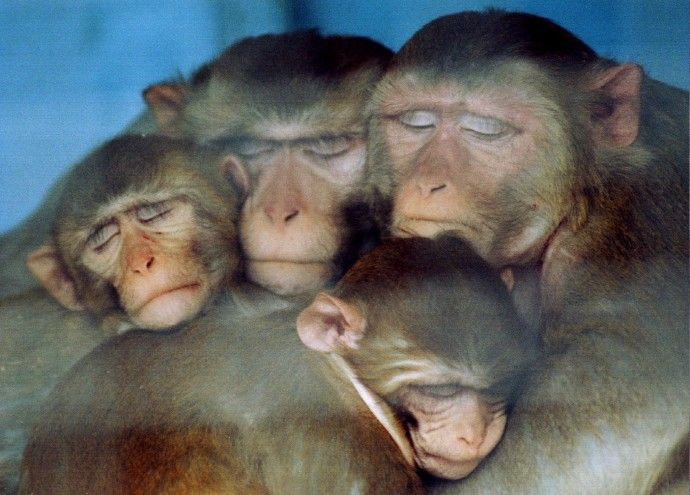Rise of the Planet of the Apes: Could Apes Really Gain Human Intelligence? [spoiler alert]

In the new version of Planet of the Apes, we get an explanation for how our evolutionary predecessors gained human intelligence with an origin story that emphasizes the science in science fiction: James Franco's character, while conducting Alzheimer's research, tests out a gene therapy on an ape that amplifies the creature's mental capacity and makes it, in a sense, human.
Could it really happen? Probably not, but there are elements of the premise -- namely, of humans endowing animals with some human characteristics in the name of medical science -- that reflect current developments in scientific research.
"They [the filmmakers] did their homework," Dr. Lary Walker of Emory's Yerkes National Primate Research Center told the Atlantic. "But when you take it in aggregate, it all tends to fall apart. It had elements of good science, but in the end, it was science fiction with the accent on fiction."
If we can briefly look at Planet of the Apes from an ethical dimension, it contains a basic moral quandary: what happens when humans, by virtue of recreating ourselves in other form, play god? It is a question that has become a standard genre trope of science fiction movies from the Matrix to Bladerunner to, yes, Planet of the Apes.
It may sound like something out of a science fiction movie, but the practice of inserting inserting a small number of human genes or cells into animals is nothing new: scientists have already made strides in medical treatment by testing cancer drugs on mice engineered to have human DNA, by seeing how human stem cells behave in rats, and by studying a blood clotting problem through goats with a human protein in their milk. A 2008 experiment in which British researchers created a human-animal embryo sparked considerable controversy, with religious groups condemning the experiment.
A recent report by the UK's Academy of Medical Sciences explored this same question, but it embedded its inquiry firmly in the context of medical science. Entitled "Animals Containing Human Material," the report called for the establishment of tighter regulations of the practice and raised some ethical considerations of where experiments might dissolve distinctions between humans and animals.
"Where people begin to worry is when you get to the brain, to the germ [reproductive] cells, and to the sort of central features that help us recognize what is a person, like skin texture, facial shape and speech," Martin Bobrow, a professor of medical genetics at the University of Cambridge chair of the group who wrote the report, told reporters at the time. "The closer [an animal brain] is to a human brain, the harder it is to predict what might happen," he added.
Few researchers believe that apes are going to gain the ability to speak or to, say, organize resistance against humans any time soon. But a recent report in the journal Nature questioned whether experiments that insert human DNA into the genomes of primates still in the embryo stage could lead the primates, once they develop, to " appreciate the ways their lives are circumscribed, and to suffer, albeit immeasurably."
"If it were cognitively aware, you wouldn't want to put it in a zoo," said Marilyn Coors, one of the report's authors. "What kind of cruelty would that be? You wouldn't be able to measure the cruelty-or maybe it could tell you. I don't know."
© Copyright IBTimes 2024. All rights reserved.





















